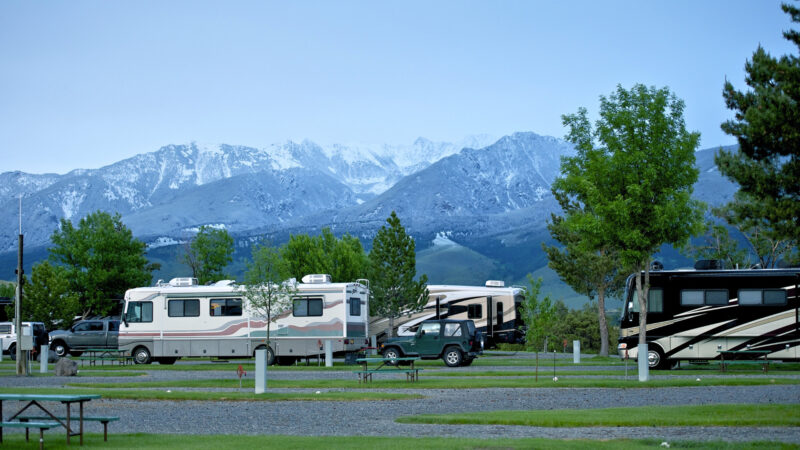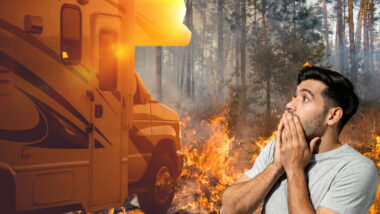Table of Contents Show
Anti-camping laws are becoming more common in Spokane, Washington; Miami Beach, Florida; Bozeman, Montana; and Casper, Wyoming. All over the country, states and local governments are passing anti-camping laws. As a result, many RVers worry about whether the rules could impact the future of RVing.
Good overnight parking spaces are becoming increasingly more challenging to find. So, could RVers be next in the crosshairs of Big Brother?
Today, we’re leaping into these anti-camping laws to see how they may affect RVers.
Let’s dive in!
What Are Anti-Camping Laws?
Anti-camping laws include rules and restrictions that prohibit camping or residing in public places. Until recently, these were typically only in large, urban areas. Unfortunately, they’re becoming increasingly common as local governments nationwide adopt new policies.
However, they’re highly debated and somewhat controversial. Some courts have ruled that these laws violate constitutional rights.
Additionally, those against the policies believe they punish vulnerable populations and do nothing to help solve the housing crisis. While some cities have adjusted their stance to be more balanced, that’s certainly not everywhere.
The debate around anti-camping laws isn’t going to go away anytime soon. With rents skyrocketing nationwide and housing becoming even more unaffordable, it could be only just beginning.
Why Are Cities Creating Anti-Camping Laws?
One of the biggest reasons cities create anti-camping laws is public health and safety concerns. Some areas with relaxed stances on homelessness have had encampments take over public spaces.
Unfortunately, the makeshift communities outgrew the infrastructure, resulting in sanitation problems with litter, human waste, and other safety hazards.
Cities that are creating anti-camping laws are looking out for the overall good of the community. They hope to keep parks, sidewalks, and other public spaces clean and accessible for all residents and visitors.
In addition to protecting residents and visitors, local governing departments are also trying to protect and support local businesses. The type of atmosphere, often created without anti-camping laws, can deter customers from frequenting businesses or specific areas. When these businesses leave, property values plummet, and the community suffers.
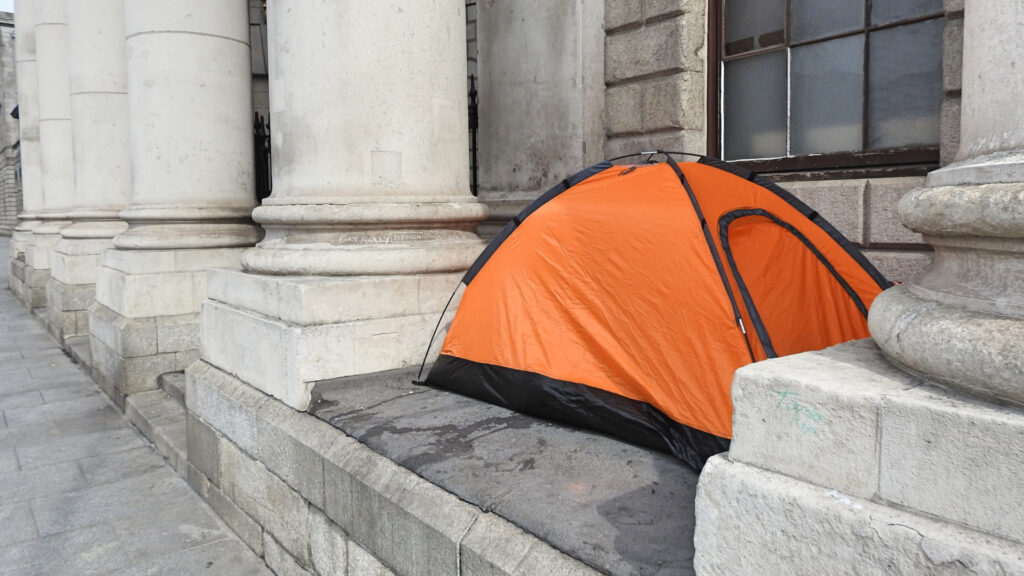
How Will Anti-Camping Laws Impact RVers?
Unfortunately, the anti-camping laws we’re seeing could majorly impact RVers. Let’s look at some of the potential issues that could arise.
Overnight Parking Restrictions
Over the last several years, we’ve seen increased restrictions regarding overnight parking.
Some popular spots, like Walmart and Cracker Barrel, have begun prohibiting recreational vehicles from staying the night in their parking lots. Some locations even have low-clearance overhangs prohibiting large vehicles like RVs from accessing their properties.
Like cities, many of these businesses are tired of the messes created by inconsiderate individuals not cleaning up after themselves. Unfortunately, the bad apples leaving messes move on to a new location and become someone else’s problem.
Could Reduce Boondocking
With overnight parking becoming restricted, many individuals are turning to boondocking on public lands.
However, like Walmart and Crack Barrell, many land management agencies have a short fuse. The Bureau of Land Management and the US Forest Service have shut down boondocking in areas due to land abuse.
Snively Hot Springs Recreation Site and Coconino National Forest are just two examples of problems officials are dealing with. Those who abuse the land aren’t making it easy on officials and those who want to use it responsibly.
Unfortunately, the status of boondocking in many locations is looking grim.
Keep in Mind: See How ‘Ghost Sites’ Are Ruining Boondocking!
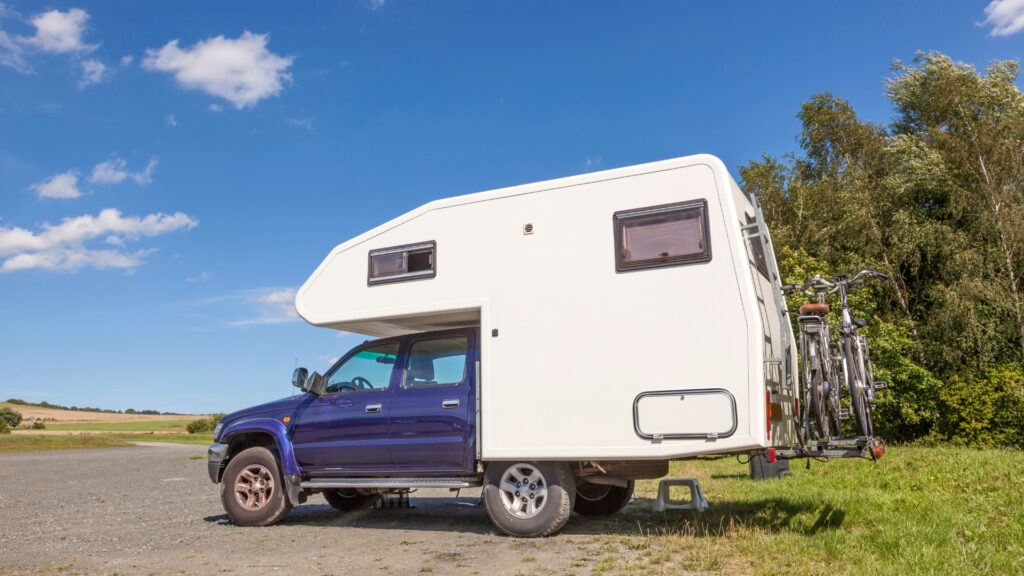
Increased Costs
With overnight parking and boondocking spots becoming restricted or overcrowded, it’s easy to expect increased campground fees in some areas. If you know anything about the law of supply and demand, the increased demand will likely drive prices for campsites upwards.
We have witnessed this over the last couple of years as the popularity of camping has drastically increased. So many people want a place to park their precious RV while they spend time in nature. So, they will be harder to find, and you’ll likely pay a premium price simultaneously.
Overcrowded Campgrounds
Another thing to consider is that not only will you be paying a premium price for campsites but they’re also going to be very crowded. Campgrounds will likely use every space possible to maximize their profits.
However, those who enjoy large, spacious campsites or having the campground to themselves will be miserable. You better get used to having camping neighbors for the foreseeable future.
Campgrounds will likely become overcrowded, especially in areas with stricter anti-camping laws and ordinances.
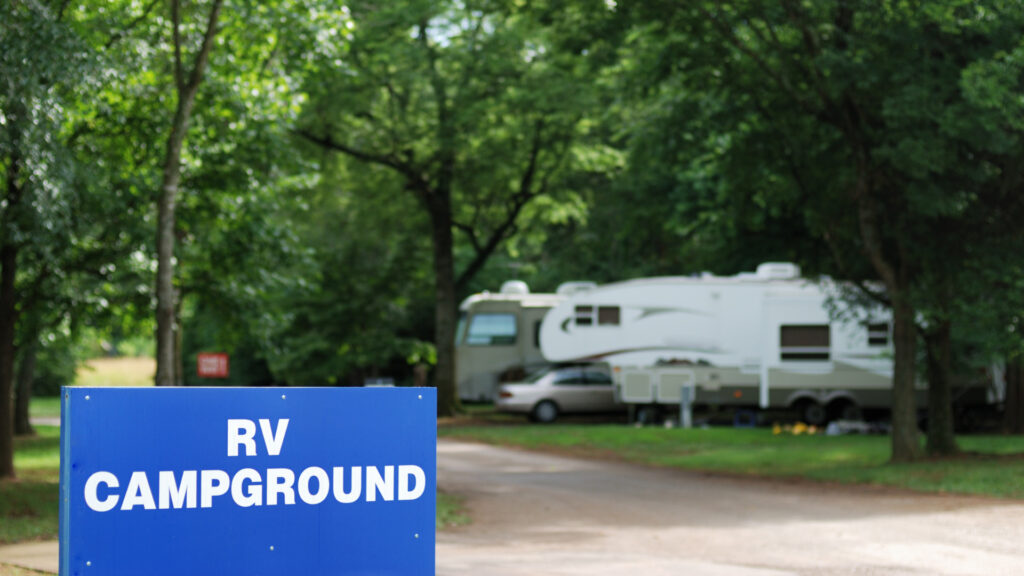
Less Freedom to Travel
If anti-camping laws continue to become more restrictive, they’ll likely result in less freedom for RVers to travel. Before enforcing these anti-camping laws, finding a place to park outside urban settings was relatively easy.
Unfortunately, the enforcement of these policies will likely only worsen. Law enforcement willing to overlook individuals camping for the night may have no choice but to get involved. This will make it much harder for nomads who enjoy going wherever work or the wind takes them.
Keep in Mind: Are you considering workamping? See what these RVers have to say about their experiences workamping!
Could Anti-Camping Laws Impact Harvest Hosts and Other Camping Memberships?
Some RVers regularly use camping memberships like Harvest Hosts and Boondockers Welcome during their travels. Unfortunately, we’ve seen and heard reports from individuals in the RV community of Harvest Hosts sites getting warning letters from local governments.
Some officials are threatening them with legal action for operating illegal commercial campgrounds.
Again, like boondocking sites, some Harvest Hosts locations are closing because of anti-camping laws and negative sentiments towards the nomadic lifestyle.
While we hope this will eventually change, it’s not likely to anytime soon. It could get a whole lot worse before it gets any better.
Will Anti-Camping Laws Change Your RVing Plans?
The anti-camping laws taking the country by storm could seriously impact your future RVing plans. If your plans include staying overnight in parking lots or other public locations, they may not be an option for long.
Make sure you familiarize yourself with the rules and regulations for where you’re planning to camp. It’s your responsibility to stay on the right side of the law.
Have you been affected by anti-camping laws?




